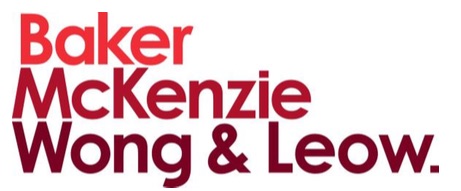29 March, 2019
The Singapore Association of Pharmaceutical Industries Code of Conduct (the "SAPI Code") has been amended to provide clearer guidelines to pharmaceutical companies on the provision/offer of "Cash & Personal Gifts", and "Gifts" to healthcare professionals ("HCP").
SAPI is an organisation that represents the interests of 42 pharmaceutical companies ("Member Companies"), and the SAPI Code provides guidance for these Member Companies in efforts to promote a high standard of ethical conduct.
The amended guidelines regarding the provision/offer of "Cash & Personal Gifts", and "Gifts" (covered in Articles 7.5.1 and 7.5.2 respectively) were developed by SAPI's Ethics & Business Integrity Committee, accepted at the extraordinary general meeting held on 7 January 2019, and came into effect on 1 February 2019.
The Code is now aligned with the recent revisions of the International Federation of Pharmaceutical Manufacturers & Associations Code of Conduct 2019, which effect a global ban on gifts and promotional aids (commonly known gimmicks or branding items) for prescription-only medicines.
1. Article 7.5.1 – "Prohibition of Cash & Personal Gifts"
Article 7.5.1 defines the scope of "personal gifts". It provides for the items, which even "where permissible, must never constitute an inducement to prescribe, purchase, sell or administer a pharmaceutical product".
Previously, Article 7.5.1 only prohibited the provision/offer of "cash or cash equivalents (such as gift certificate[s])" and "[g]ifts for the personal benefit of HCPs". With the amendments, cultural courtesy gifts (such as mooncakes, cookies, mandarin oranges, etc.) will also be caught by the prohibition.
Such personal gifts were previously allowed under Article 7.5.2(iv) as "exceptional gifts during … festive seasons … with a value of up to $50… [and] a maximum of two such gifts per year".
Significantly, the article is not limited to the direct provision/offer of cash and personal gifts to HCPs.
The amendment prevents any back-door activity by:
-
Extending the prohibition to the provision/offer through "any other third parties" including clinics and institutions; and
-
Prohibiting participation or any support in the form of financial donation and/or gifts to medical societies, hospitals or a clinic's social events.
2. Article 7.5.2 – "Gifts"
In contrast to the previous Article 7.5.2, where the provision of promotional items was restricted based on monetary value, there is now a blanket ban on providing/offering promotional aids to HCPs in respect of prescription-only medicines. Promotional aids are defined as non-monetary items given for a promotional purpose, and commonly known as gimmicks or branding items such as sticky notes, note pads and calendars.
However, there is a carve out for the provision of pens and notepads to HCPs. Article 7.5.2(ii) carefully sets out that such promotional aids may be provided to HCPs, but only in the context of company organised events for the purpose of taking notes, with no product branding, and of minimal value with only the necessary quantity being distributed.
Additionally, the provision of congratulatory or condolence flowers and messages in any form of media directly to or on behalf of a HCP or a medical centre has been strictly prohibited (Article 7.5.2(iv)). Previously, congratulatory flowers of a maximum value of S$150 were allowed in limited circumstances.
Although the prohibition under Article 7.5.2, like Article 7.5.1, is in relation to prescription-only medicines, the provision/offer of promotional aids for over-the- counter and pharmacy medicines if relevant to the practice of the HCP is subject to restrictions. Promotional aids for the promotion of such medicines can only be provided/offered to the HCP if they are of minimal quantity valued at no more than S$20.
Overall, the SAPI Code amendments have helpfully articulated the scope of the items included in the "Prohibition of Cash & Personal Gifts" and "Gifts", albeit by implementing far more stringent requirements on pharmaceutical companies. These additional guidelines, therefore, provide greater clarity for the self- regulation of the pharmaceutical industry.
While the SAPI Code does not have the force of law, acceptance and active observance of the SAPI Code is considered mandatory for all Member Companies.
The updated SAPI Code (2019) is yet to be published online. However, any updates in respect of the SAPI Code may be found here.
For further information, please contact:
Andy Leck, Principal, Baker & McKenzie.Wong & Leow
andy.leck@bakermckenzie.com





